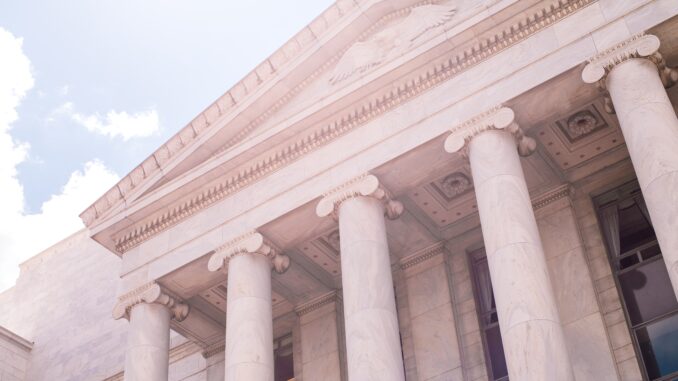
By Samuel Chavez
With the 2024 presidential election cycle reaching its end, I’ve noticed that more and more people seem to be passionate about the democratic process.
However, most of these people probably wouldn’t be able to answer questions pertaining to the government in general. Questions such as who’s in the presidential primaries, which branch of government actually makes the laws, what type of local government their city uses or who is even part of their local government’s council.
Being involved in politics on the federal level is vital because that’s how we elect the president and how each of us are represented in the U.S. Senate as well as the House of Representatives.
Right now, states are holding presidential primaries and caucuses for the presidential election in November. The presidential candidates will be chosen from July to September of this year. But, I’d like to know how many people actually vote in primary elections. According to States United Democracy, primary elections have only had, on average, a 27% voter turnout rate since 2000.
This low turnout seems to be contributing to the poor state our country is currently in. If only a quarter of the population votes for the primary election, chances are that the potential candidates elected do not reflect the needs of the nation as a whole. Surely, everyone votes in the presidential election, right? Not quite. States United Democracy said that since 2000, the average voter turnout rate for general elections is 60.5%. This means that more than half of people who vote in general elections do not vote in the primary. Almost 40% of the country doesn’t participate at all.
In addition to low voter turnout, some Americans may not know what the president actually does. The president, who is part of the executive branch, cannot wage war, make laws, decide how federal money is spent and cannot control the economy. But that does not stop people from blaming the president. Instead, the U.S. Senate and the House of Representatives, which are part of the legislative branch, are responsible for making and passing laws and budget plans to the president. The president can only decide whether the bill is ratified or not. Even if the president does not ratify a bill, congress can vote with a 2/3 majority to ratify the bill anyway. Maybe we should put as much emphasis on electing senators and representatives in the House of Representatives as we do on the president.
Though the voter registration deadline for Texas closed Feb. 5, those who are registered to vote will have until 7 p.m. on May 5 to cast their vote. Texas holds open primaries, meaning people do not have to register with the political party they will vote for. Voters can vote in a primary for any party, but cannot vote in more than one party’s primary.
However, people should not neglect their civic duties and also participate in local government. The local government, though may seem insignificant, most directly affects your day-to-day life. Local government responsibilities include filling pesky potholes you may encounter on your commute to work, providing public transportation, maintaining the streets free of debris and waste collection to name a few.
Amarillo uses the Council-Manager form of government. Adopted in November of 1913, it “sought to rid local government of patronage and corruption by appointing a professional city manager to oversee daily operations without political interference” according to the City of Amarillo website. They also strive for public safety, transportation, an educated population, economic development and fiscal responsibility. This form of government is meant to encourage communication between citizens and their government. Each member of the governing body has an equal say in policy development and administration oversight.
I’d like to focus a little more on Amarillo’s urban development. I don’t want our city to be filled with roads and parking lots instead of parks, sidewalks and beautiful old buildings.
I say why not participate in local government, who does not want to be heard and taken seriously by their government. Even if you think you do not need to care about the government, think about your tax dollars. It’s shocking how many people truly don’t care why money is taken from our checks or what said money is funding. We all have a say in what tax laws are rejected or ratified in our county, we just need to vote.
Lastly, I want to stress the importance of the separation of religion and state. I have noticed recently that the line between politics and religion is getting blurred. Most notably, many evangelical Christians wish to make Christianity a state religion.
According to The Pew Research Center, “white evangelical Protestants are more likely than other Christians to say the founders intended for America to be a ‘Christian nation,’ [and] that the U.S. should be a Christian nation today.”
I have nothing against any religion, but the First Amendment protects everyone from having a religion imposed on them and gives us the right to practice whatever we want so long as it does not interfere with the rights of others. If a state religion is imposed this completely disregards the First Amendment, and at that point, I believe we should plead the Second Amendment.
Democracy is not a fad, it is a way of life. Now is the time for people to get more involved in their government and vote for a better future.
Thomas Jefferson said it best, “we do not have government by the majority. We have government by the majority who participate.”

Leave a Reply